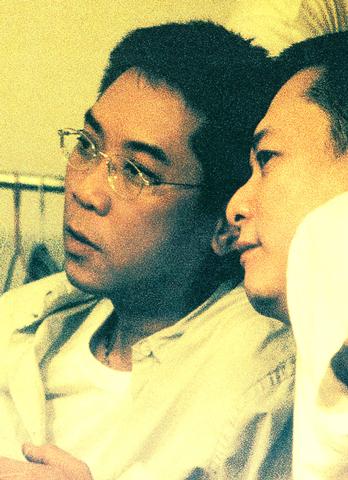The Golden Horse Film Festival is not merely a huge showcase of nearly 100 acclaimed films, it also offers a an annual award, the Golden Horse Award (
Hong Kong director Stanley Kwan's (

PHOTO COURTESY OF CELLULOID DREAMS
Lan Yu is about a middle-aged business man, Handong, who meets a university student named Lan Yu in Beijing. Handong discovers Lan Yu's sexual orientation and is offered his first romantic encounter with a man. But with the age difference between the two and the class seperation dividing them, Lan Yu knows the relationship is doomed. They argue and make up again and again and even survive the Tiananmen Square massacre of 1989 together. Nonetheless, Handong later decides to marry a woman. Their several encounters after Handong's divorce prove that he cannot forget about Lan Yu and so tries going back to him and the good times they shared.
Shifting his focus from women to gay men, Kwan's narrative conveys moving elements which easily let the audience settle into the romance. What is valuable about Lan Yu is that it tells story set in Beijing from the perspective of a Hong Konger. By focusing on a universal story of love, Kwan has avoided sensationalizing the homosexual community in Beijing.
The film was selected to show in the "A Certain Regard" category of this year's Cannes Film Festival.
Another film dealing with Beijing is Wang Xiaoshuai's (
The film has excellent scenes of people's lives in and about the city's catacomb of hutung contrasted against fast-growing downtown Beijing, which has an obvious influence on the young minds of the main characters. As the film's Chinese title, The 17-Year-Old Bicycle, suggests, this is a story about growing up. And for boys in Beijing, growing up means being cool, street-tough, and slightly frayed around the edges, both physically and mentally. The film was this year's Silver Bear winner at the Berlin Film Festival.
Tsai Ming-Liang's (
The film received high praise when it screened at Lincoln Center in New York during a special September showcase for Tsai's films. One month ago, at the Chicago International Film Festival, it won the Jury's Grand Prize and also took honors in the Best Cinematography category, proving that Tsai's most recent work is another strong contender at the Golden Horse Awards.

April 28 to May 4 During the Japanese colonial era, a city’s “first” high school typically served Japanese students, while Taiwanese attended the “second” high school. Only in Taichung was this reversed. That’s because when Taichung First High School opened its doors on May 1, 1915 to serve Taiwanese students who were previously barred from secondary education, it was the only high school in town. Former principal Hideo Azukisawa threatened to quit when the government in 1922 attempted to transfer the “first” designation to a new local high school for Japanese students, leading to this unusual situation. Prior to the Taichung First

When the South Vietnamese capital of Saigon fell to the North Vietnamese forces 50 years ago this week, it prompted a mass exodus of some 2 million people — hundreds of thousands fleeing perilously on small boats across open water to escape the communist regime. Many ultimately settled in Southern California’s Orange County in an area now known as “Little Saigon,” not far from Marine Corps Base Camp Pendleton, where the first refugees were airlifted upon reaching the US. The diaspora now also has significant populations in Virginia, Texas and Washington state, as well as in countries including France and Australia.

On April 17, Chinese Nationalist Party (KMT) Chairman Eric Chu (朱立倫) launched a bold campaign to revive and revitalize the KMT base by calling for an impromptu rally at the Taipei prosecutor’s offices to protest recent arrests of KMT recall campaigners over allegations of forgery and fraud involving signatures of dead voters. The protest had no time to apply for permits and was illegal, but that played into the sense of opposition grievance at alleged weaponization of the judiciary by the Democratic Progressive Party (DPP) to “annihilate” the opposition parties. Blamed for faltering recall campaigns and faced with a KMT chair

Article 2 of the Additional Articles of the Constitution of the Republic of China (中華民國憲法增修條文) stipulates that upon a vote of no confidence in the premier, the president can dissolve the legislature within 10 days. If the legislature is dissolved, a new legislative election must be held within 60 days, and the legislators’ terms will then be reckoned from that election. Two weeks ago Taipei Mayor Chiang Wan-an (蔣萬安) of the Chinese Nationalist Party (KMT) proposed that the legislature hold a vote of no confidence in the premier and dare the president to dissolve the legislature. The legislature is currently controlled